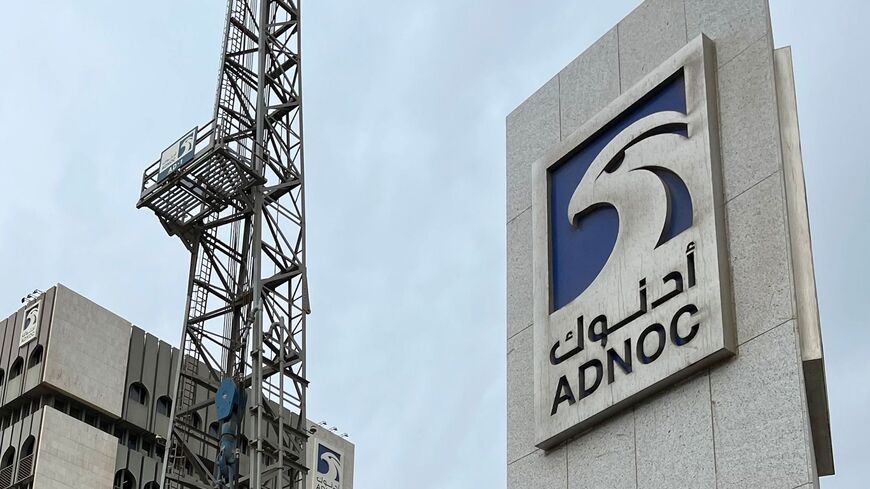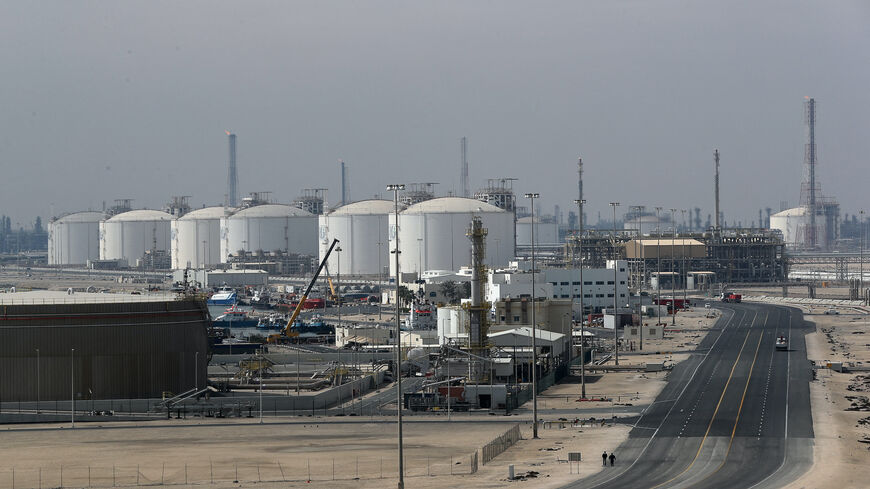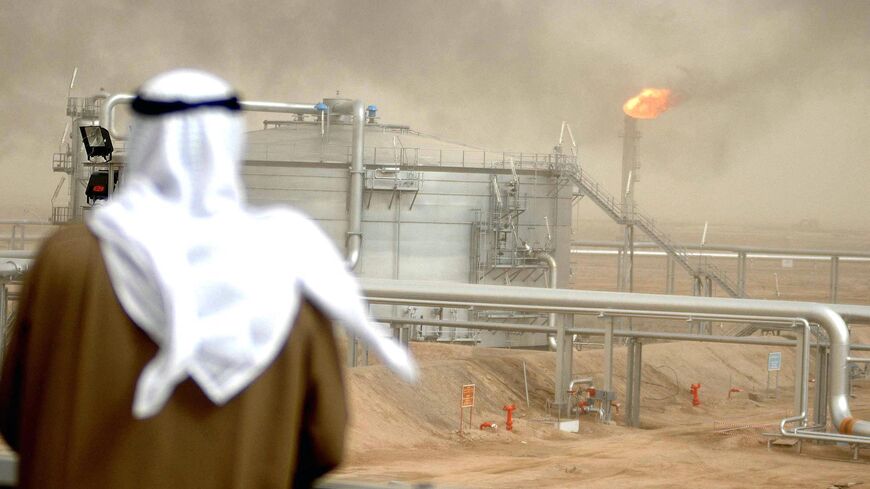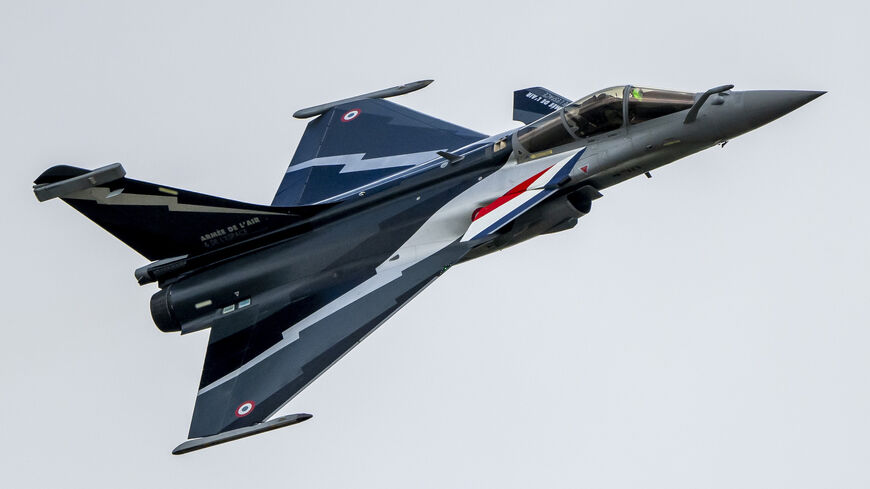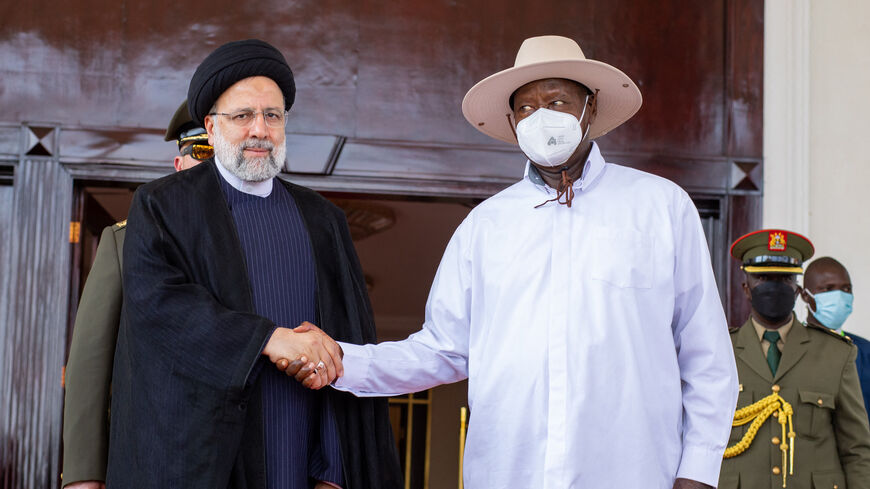Turkey's natural gas offers much needed energy options
Al-Monitor Pro Members
Gerald Kepes
President, Competitive Energy Strategies, LLC
April 11, 2023
First gas from the Turkish national oil company’s (Türkiye Petrolleri Anonim Ortakligi, TPAO) ultra-deepwater Sakarya field is due onstream in the coming weeks. Located in the Turkish sector of the Black Sea, first gas and consistent first phase performance will be a remarkable achievement for Turkey’s NOC. TPAO has never before developed a deepwater hydrocarbon field, much less an ultra-deepwater one.
Significant gas volumes will provide badly needed options vis-à-vis gas imported by pipeline from Russia, Iran and Azerbaijan, and liquified natural gas (LNG) from Qatar, the United States and others. Sakarya gas could be utilized for domestic needs — reducing gas imports — or to export gas, or both. The government envisions Turkey as a natural gas hub where multiple sources of foreign and domestic gas are traded and sold, realizing ambitions to be a geostrategically-positioned energy powerhouse. But, as important as Sakarya gas is, Turkey is a long way from achieving that vision. Much more is required.
The Turkish Black Sea natural gas play is not yet a new gas province; this is overstated. But it is significant, because it represents a major expansion of TPAO’s institutional capacity, and a successful first phase is an important step toward an enhanced national energy security scenario for Turkey. It could also provide the wherewithal to change its posture toward southern neighbors regarding the Eastern Mediterranean gas play and be a player in the resolution of Europe’s over-dependence on Russian gas.
New Black Sea gas play: challenges and opportunities
- The Sakarya gas field is located in the Turkish sector of the Black Sea in excess of 2,100 meters of water (wd), roughly 175 km offshore Eregli, Turkey. The discovery well was drilled in 2020; subsequent appraisal wells and new field finds increased discovered resources from 320 billion cubic meters (bcm) to 710 bcm of lean natural gas.
- Plans include a first phase, onstream in 2023, and a second phase due by 2028. First phase called for 10 production wells delivering 10 mcm/d (3.65 bcm/y). Full phase development calls for another 30, hence total output of 40 mcm/d (14.6 bcm/y).
- TPAO operates the field with 100% equity assuming all reservoir, operational and financial risk. Development incorporates a subsea natural gas production system (on the seabed), 170 km submarine pipeline to shore, and an onshore gas processing facility. The critical partners for TPAO are Schlumberger and Subsea 7.
- TPAO has never developed a deepwater field before, with shallow water/onshore experience only. There are only a small number of producing hydrocarbon fields at a depth greater than 2,000 meters in the world. Drilling an ultra-deepwater exploration well is one thing. Developing a field in 2,000 wd is quite another. From a risk management perspective, 100% equity in an ultra-deepwater field is rare.
- Successful completion of the first phase and timely full phase achievement will be a major achievement for TPAO, confirming a major step change in institutional capacity. Once onstream, production performance over the coming months is critical. And then meeting the full phase critical path timetable over the next four years. Equally critical to fully capturing its Black Sea resource potential will be ongoing exploration activity and success. For maximum impact, TPAO’s new gas play will need to double or triple its discovered resource base, currently about 710 bcm (20 tcf).
- Many exploration wells are needed to fully test the commercial limits of the new play. The only NOC (or IOC) that ever tested an entire deepwater basin’s potential, assuming sole risk, was Brazil’s Petrobras in the Campos Basin and first phase of the Santos Basin. When the pre-salt potential was confirmed in the Santos, Brazilian policymakers then decided to open up and bring in foreign equity partners to manage risk.
- There are a number of deepwater operators active in the Eastern Med gas play, but all are unlikely to invest in the Black Sea alongside TPAO and potentially be hostage to the political pressure stemming from Turkish objectives and actions in Cyprus’ offshore. There are other deepwater-capable companies, but they are inactive in the region.
- Should Turkey wish for TPAO to fully exploit the new gas play, sole risk, this would be a major risk. A high cost deepwater exploration program will be required at the same time as the NOC proceeds with Sakarya development. Should Turkey wish to reduce risk it would require a different competitive landscape for the Black Sea, proceeding with selected partners and new contractual structures. TPAO will bear a heavy burden regardless; given the focus on control, the NOC will have equity in every contract and quite possibly be the operator by right of first refusal.
Turkey: geostrategic energy player
- Domestic gas consumption was about 60 bcm/y in 2022, roughly one third of total energy consumption. Almost all gas is imported, about 55 bcm/y in 2022; of which around 40% is imported via the Russian pipeline (Blue Stream/TurkStream), 17% via the Iranian pipeline and 16% via the Azeri pipeline (TANAP). LNG from 10 different countries makes up the remainder. Russian and Iranian gas import volumes are not without risk; there have been interruptions planned or not. Azeri and Russian gas also transits Turkey reaching southern Europe via TANAP and TurkStream, respectively.
- At peak output by 2028, Sakarya output would represent 20% of Turkish gas demand, assuming some growth in the latter; it could back out imports, be leveraged for discounted pricing, or exported to higher value gas markets in Southern Europe (even LNG with sufficient volumes).
- The Turkish government envisions a commercial gas hub with multiple sources of natural gas and players, trading and selling, with enough independent activity to set a competitive price benchmark that buyers would trust. But Turkey does not have a competitive gas market (gas is subsidized, it is unclear what price will be paid for Sakarya gas; there are very few suppliers, mostly stated owned). Do southern European energy markets seek to access Russian gas via Turkey? Is Russia going to sell its gas cheaply to Turkey, in order for Turkey to turn around and realize a premium on that gas?
- And then there is trust. The one thing that Russia has taught European energy markets is that a trusted partner is the foundation for a reliable energy supplier or transit corridor. Why would European markets swap out their Russian risk in exchange for a reliance on Turkish gas which may be subject to the brinkmanship experienced in the Eastern Med and in other settings.
- Maximum optionality for Turkey is created by an exploration effort intended to triple the current discovered resource, turning the new play into a natural gas province. To compare: discovered recoverable resource in the Eastern Med gas play is roughly 3,200 bcm (90 tcf); Egypt’s Nile Delta Basin has about 2,650 bcm (75 tcf). This would provide Turkey with the ability to reduce import costs, buy advantaged gas from its neighbors at lower volumes, and consider an LNG export project.
Scenario 1: Sakarya field is faced with performance challenges and a limited pace of exploration activity.
This scenario incorporates more aggressive actions taken against foreign exploration activity in the Eastern Med in areas around Cyprus claimed by Turkey. The result: limited development of the options promised by full exploitation of the Black Sea play. This scenario coincides with an isolated Turkey vis-à-vis its southern neighbors and one that remains dependent on Russian and Iranian gas and expensive LNG imports.
Scenario 2: The Black Sea gas project realizes its full potential and a more open policy stance guides Turkey’s energy sector as well as its near abroad foreign policy.
Many more exploration wells need to be drilled which requires that the Black Sea’s competitive landscape change dramatically with a more open policy. A less confrontational near abroad policy would seek to rebuild the trust required for southern European markets to sign longer term agreements based on Turkish gas, or financing for Turkish LNG export facilities. The near abroad policy shift would also position East Med play operators to make a lower political risk assessment in investing in the Turkish Black Sea gas play at the same time. This scenario encompasses the continued development of the TPAO’s institutional capacity which would proceed apace with partnerships and higher levels of activity.
The most likely scenario envisions the Sakarya development proceeding and reaching its production objectives by 2028. There will be challenges and potentially delays. If control over natural resources takes precedence over full exploitation of Black Sea gas potential then the change in competitive landscape will be limited and exploration activity/results would also be constrained. Nevertheless, sufficient natural gas resource is developed to offer options regarding the import of Russian and Iranian gas; less dependence on these suppliers, or lower import costs, or both. Sakarya gas could cut deeply into the volumes of Russian gas going into southern Europe, directly or indirectly, possibly helping to finish off Russian gas as a meaningful supplier into European markets overall. Turkish intervention in the East Med gas play in and around Cyprus continues sporadically, but fails to achieve assumed goals; Cyprus gas development is directed southward via Egyptian infrastructure; this could include offshore Lebanon gas.
Even if the new Black Sea gas play does not grow larger, a source of natural gas that provides 20%+ of domestic gas demand is significant and an impressive achievement for TPAO and its government. Even more impressive would be the creation of a commercial gas hub with multiple sources of natural gas and players, trading and selling, with independent formulation of a trusted, competitive price benchmark. These ingredients seem distant from the current government and its focus on control and confrontation.
Gerald Kepes has more than 35 years of experience as a consultant and petroleum geologist in the global energy industry. Most recently, he was Vice President in Energy & Natural Resources for IHS Markit (now S&P Global), and previously, a PFC Energy Partner, where he established PFC’s global upstream consulting practice. He also held various positions with a US oil company in North Africa and the Middle East.
We're glad you're interested in this memo.
Memos are one of several features available only to PRO Expert members. Become a member to read the full memos and get access to all exclusive PRO content.

Already a Member? Sign in
The Middle East's Best Newsletters
Join over 50,000 readers who access our journalists dedicated newsletters, covering the top political, security, business and tech issues across the region each week.
Delivered straight to your inbox.
Free
What's included:
Free newsletters available:
- The Takeaway & Week in Review
- Middle East Minute (AM)
- Daily Briefing (PM)
- Business & Tech Briefing
- Security Briefing
- Gulf Briefing
- Israel Briefing
- Palestine Briefing
- Turkey Briefing
- Iraq Briefing
Premium Membership
Join the Middle East's most notable experts for premium memos, trend reports, live video Q&A, and intimate in-person events, each detailing exclusive insights on business and geopolitical trends shaping the region.
$25.00 / month
billed annually
$31.00 / month
billed monthly
What's included:
Memos - premium analytical writing: actionable insights on markets and geopolitics.
Live Video Q&A - Hear from our top journalists and regional experts.
Special Events - Intimate in-person events with business & political VIPs.
Trend Reports - Deep dive analysis on market updates.
We also offer team plans. Please send an email to pro.support@al-monitor.com and we'll onboard your team.
Already a Member? Sign in


